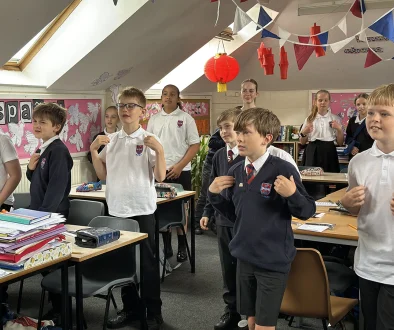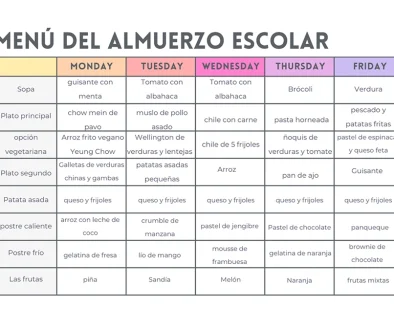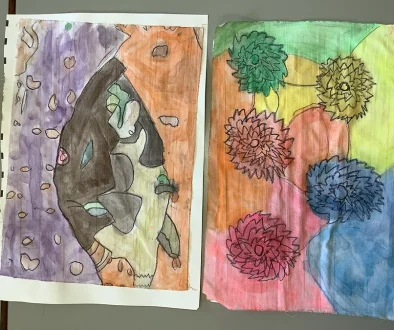Mother Tongue Day celebration – 21 February 2025
This year, we have chosen to mark Mother Tongue Day with a special whole school assembly featuring some of our students who speak a wide range of languages at home. We began with an assembly explaining the origins of the expression ‘mother tongue’ and learning about the history of Mother Tongue Day in the Eastern Province of Bangladesh in 1952.
Speaking in languages other than English is important to our school as we have children studying with us who also speak German, Ukrainian, Russian, Afrikaans and Welsh at home. During this assembly, we interviewed some of these students to find out what makes communication in a foreign language enriching. We discovered that it is good to be connected to our culture with special words related to special events. We also learned to speak some Welsh greetings.
In our school, curiosity and empathy are part of our core mission as a learning community. We work hard to understand ideas and cultures which are different to our own and celebrate the differences that we encounter. In Form Times, we use Picture News resources as a stimulus for discussion, and these often focus on social, humanitarian and global issues.
In addition to marking Mother Tongue Day, we have featured internationalism and global insights in a range of whole school assemblies throughout the year:
- One assembly was about the benefits of travel to broaden the mind, entitled ‘Farewells and new chapters’, which was led by the Year 10 Language Ambassador, Anaya.
- We also marked a teacher’s humanitarian trip to the Himalayas over the February half term, learning about the needs of children living and working in that region and taking part in fundraising activities as a result of the presentation.
- Another assembly this year has been about the role of the United Nations in upholding human rights, particularly linked to children’s rights, led by Mrs Di Risio, one of the MFL teachers.
- Our VE day celebrations in May began with an assembly from Year 9 pupils who presented the key information but also thoughtfully considered the events of VE day from the point of view of occupied France and also Germany, both at the time and today.
Assemblies set the tone and culture for the school as they are a time to explore themes and issues with the whole school community. We are lucky to have students who are happy to write the scripts of their assemblies and develop their public speaking skills to deliver their thoughts to the school. It is, therefore, an excellent vehicle to keep global citizenship and intercultural understanding at the heart of our school community. Also, whenever possible, we link our assembly topics to our school learning characteristics so that the children can see their relevance in everyday life on the micro and macro scale!



